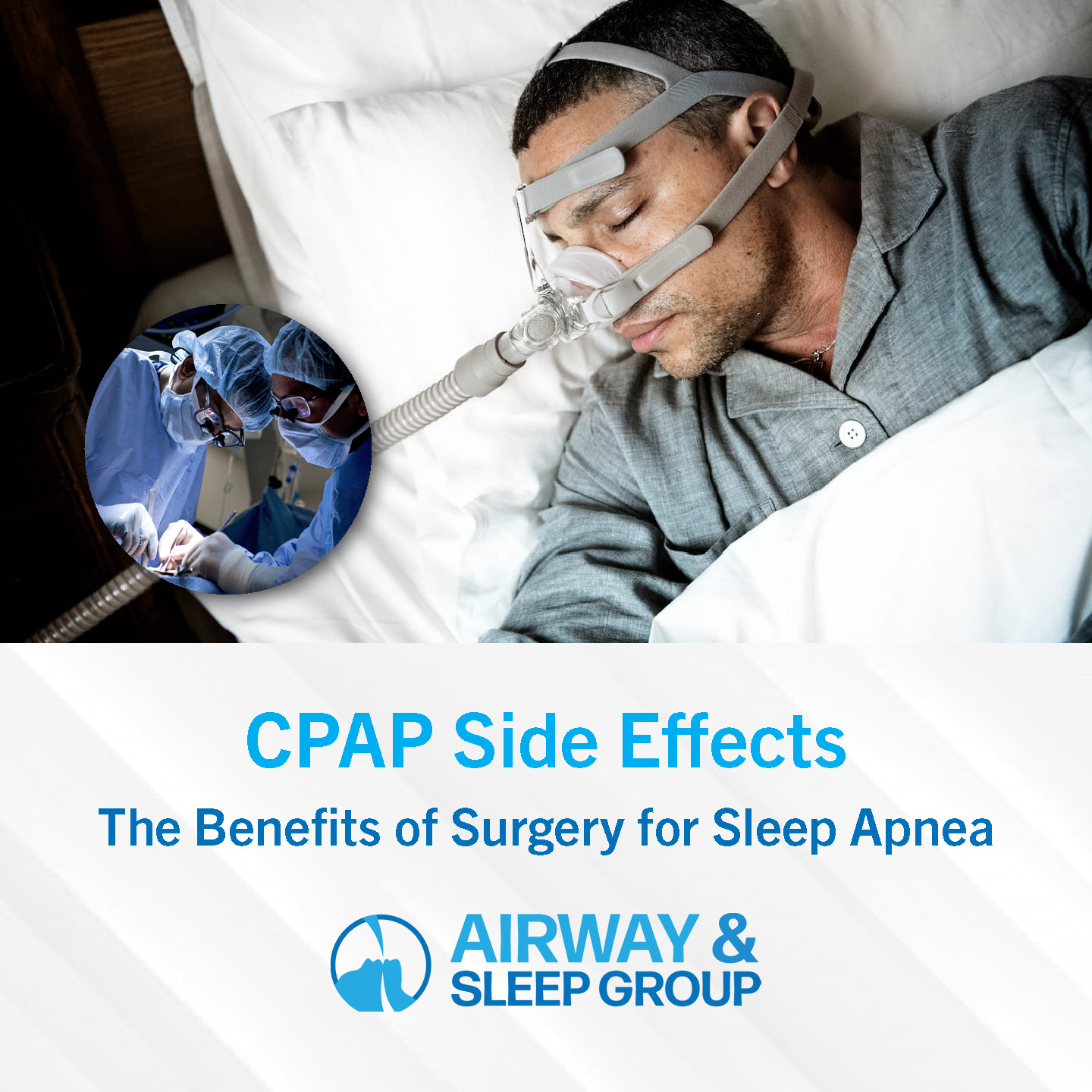Listen to our podcast here.
The Side Effects of CPAP
There are more than eight million CPAP users in the United States, with numbers increasing by eight to nine percent yearly. Though, patients with sleep apnea who choose to use a CPAP machine can experience some of these common side effects.
Nasal congestion
Nasal congestion is one of the most common side effects associated with CPAP therapy. This is caused by the flow of dry, pressurized air through the sinuses. Side effects include the feelings of a stuffy nose, runny nose, a burning sensation, or nosebleeds.
Dry Mouth and Eyes
Waking up with a dry mouth or a dry throat typically is caused by breathing the dry, pressurized air of a CPAP machine.
As escaping air blows across your face, a mask leak can dry your eyes while you sleep. You may not even notice, as the amount of leakage can change with your sleeping position throughout the night.
Bloating, Burping, and Gas
When the flow of continuous positive airway pressure becomes difficult to breathe against, it can end up redirecting into your esophagus and you end up swallowing air, causing aerophagia. Aerophagia symptoms include bloating, burping, stomach pain, and passing gas.
Difficulty Exhaling
Some people may find it difficult to exhale against the continuous flow of air. This can lead to the sensation of shortness of breath even though enough air is allowed.
Skin Irritation and Acne
Because your CPAP mask can collect skin oils, dead skin cells, and sweat while you sleep, this can lead to the build-up of germs and bacteria which can cause skin irritation, rash, acne, and sores.
Claustrophobia
Claustrophobia, or the extreme or irrational fear of confined places, can cause new CPAP users to find it difficult to adjust to the feeling of wearing a CPAP mask and tubing. This is especially true for those who require a full face mask. While the feeling usually goes away with time and practice, the fear can make it difficult to get into the habit of regularly using your CPAP machine.
Surgical Options
There are many surgical options for treating sleep apnea, depending on how severe your sleep apnea is and the condition of your overall health. Surgery improves disease severity, reduces early mortality risk, and cardiovascular risk.
Some sleep apnea surgical options include:
• Using radiofrequency waves to shrink or remove tissues in the back of your throat, opening up your airway.
• Removing extra tissue from the top of your throat and the back of your mouth.
• Jaw repositioning to create more space behind the tongue.
• Slightly tightening the tendons in the front of your tongue. This can prevent your tongue from rolling back and interfering with your breathing.
• Removing a portion of the back of your tongue. This makes your airway larger.
• Removing both your tonsils as well as tonsillar tissue near the back of your tongue. Your doctor might recommend this option to help open up the lower part of your throat for easier breathing.
• Straightening your nasal septum, which can help straighten out your nasal cavities and make it easier to breathe.
• Moving the hyoid bone and its nearby muscles at bottom of your tongue in your neck to open up your airway.
Treating Sleep Apnea at Airway & Sleep Group
If you’re unhappy with using a CPAP machine for your sleep apnea and would like to learn more about surgical procedures to correct your condition, call our Reston office at (571) 244-7329 to schedule an appointment. You can also get in touch by filling out our online contact form and we’ll get back to you shortly.

